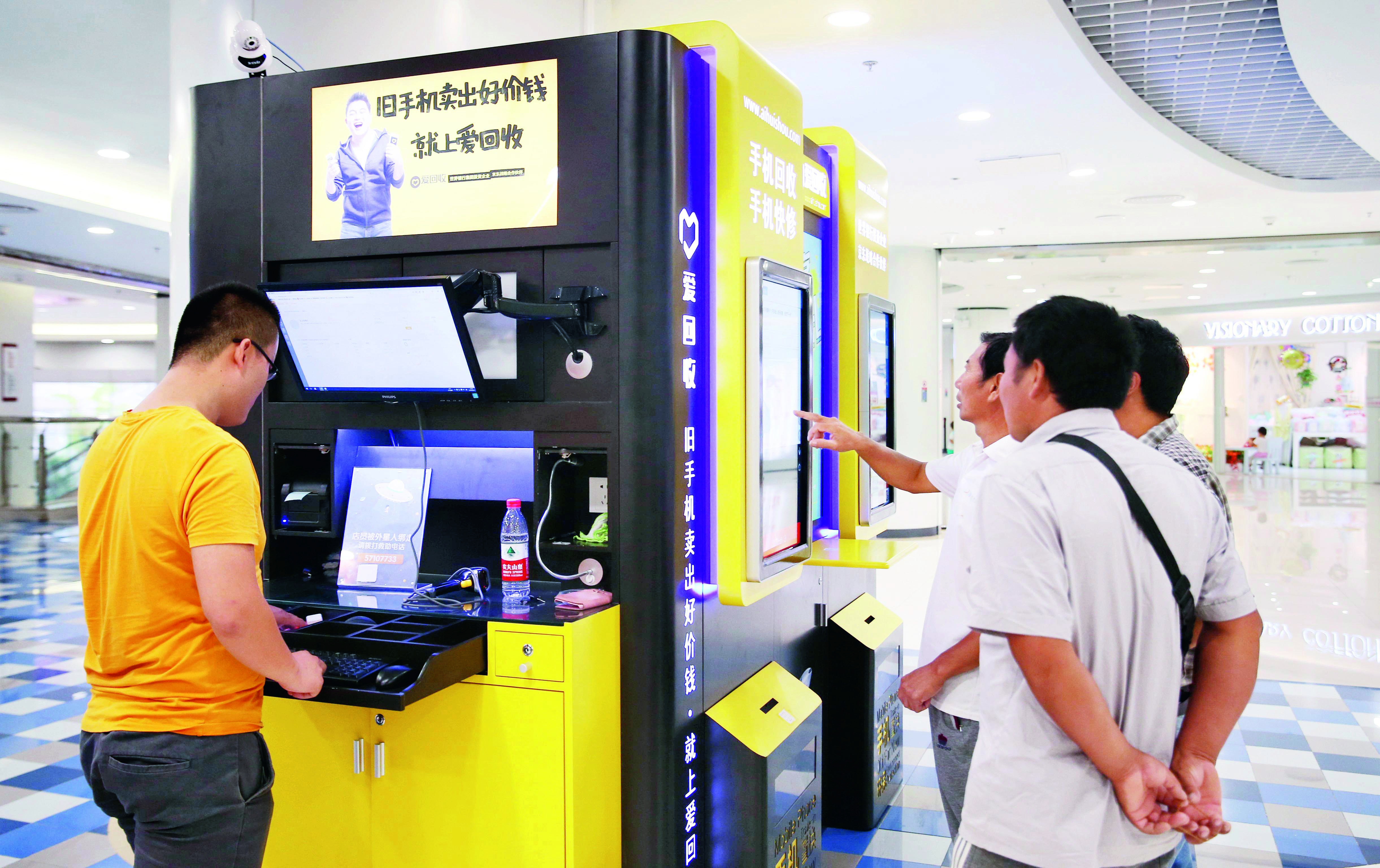Old Cell Phones: Trash or Treasure?

“I have five old cell phones at home that I don’t know what to do with,” groans Mr. Zhu from Beijing. “I thought about selling them, but the price small shops offered was too low.” Dealing with outdated phones has become a perplexing headache for many.
Statistics from the China Academy of Information and Communications Technology (CAICT) show that 1,446 different models of mobile phones were released in China in 2016, and the domestic shipments totaled 560 million in the same period, accounting for a third of global shipment volume. According to industry insiders, because the sale of every new cell phone means that an old one will be discarded, about four to five hundred million unused phones will pile up in China annually over the next few years. In fact, over a billion cell phones have already been discarded. Figuring out how to deal with so many old mobile phones has become an increasingly pressing dilemma.
Where Do Old Phones Go?
With the fast development of mobile phone technology, the average lifespan of a cell phone has dropped. According to a 2014 survey, about half of China’s mobile phone users changed to a new one every 18 months.
However, compared to the rocketing sales of new phones, the volume of old phones that get recycled remains much lower. Only two percent of old phones are recycled. Most end up in landfills.
Discarded cell phones have actually become a severe waste of resources. According to environmental analysts, about 150 grams of gold can be extracted from every ton of old mobile phones. If 200 million cell phones are discarded every year at a weight of about 20,000 tons, recycling of all those phones would produce three tons of gold and 60 tons of silver.
Components of old cell phones including circuit boards, batteries, speakers, cameras and microphones all contain precious metals. And cameras can be disassembled from old phones and reused in other devices. Moreover, plastic casings, screens, earphones and chargers can all be recycled.
Meanwhile, the precious metals contained in discarded cell phones can harm the environment. If those phones are burned, poisonous gas containing carcinogenic matter will likely be emitted.
Hidden “Golden Mine”
In spite of the great quantity, high value, and high risks of inappropriate disposal, no great shift to recycling has ever happened. Many worry that their personal information will be at risk if their cell phones get recycled because the devices carry a large amount of information.
And the recycling value of a single old cell phone is not very attractive. Regardless of the price of the phone, the cost of the material is always lower than US$200, with the rest of the costs going to research, development and promotion. When cell phones are recycled by enterprises, they are usually disassembled and the most valuable metals extracted. Not much value remains with the device whether it functions or not and the recycling returns are quite low.
Manufacturers also dread the heavy labor required to take apart phones. They don’t want to pay the cost of recycling and proper disposal of the hazardous components. Many cell phone makers couldn’t stay profitable if disposal was part of the equation.
“Internet Plus” Breaths New Life into Old Phones
Given this situation, many companies aiming at recycling old cell phones through the internet, big data, O2O and other methods have been launched. Aihuishou is a leading company in recycling cell phones.
On December 21, 2016, Aihuishou received series D funding of 400 million yuan (about US$60 million). It is already seeing profits. The company focuses on recycling electronic products including cell phones, laptops and digital cameras. And it uses a new, different model to inject new life into the traditional recycling business. In the age of the mobile internet, Aihuishou has become the largest C2B (Customer to Business) recycling and treatment platform in China.
Aihuishou gets businesses to bid on recycling. Its total volume of transactions has reached 50 million yuan (about US$7.4 million) and around 100,000 electronic products have been recycled. At present, its daily transaction volume averages over 300, while the price of an order averages around 700 yuan (about US$104). The company now makes ends meet.
According to Chen Xuefeng, president of Aihuishou, most customers still prefer to go to brick-and-mortar shops to sell their old products. For example, of 100 customers, only 40 choose to mail the old phones. And of 100 products mailed, the descriptions of about 60 to 70 matched the true situations, in which case money is released to the seller. In other cases, the buyer has to talk to the seller to renegotiate the price. Although mailing saves operational costs, the hidden costs of lack of communication and poor customer experience are even higher.
The platform’s profits can be credited to multiple channels of treatment for the recycled phones. Some of the phones they receive are totally scrapped. These phones are handed over to recycling institutions with environmental protection licensing, which expertly disassemble them and extract the precious metals. Some phones are still partially functional. The functional components are removed and repurposed as replacement parts. Others are relatively new models with perfect functionality and only a few scratches. These are sold on its own platform or JD.com, a popular e-commerce platform in China.
According to incomplete statistics, around 20 percent of phones recycled by Aihuishou are resold, 50 percent are bid on by recycling institutions and 30 percent are disposed of in an environmentally-friendly manner.
“At first, we just wanted to create the circular economy for electronic products and make the most use of those products,” explained Chen. “But the goal of the company has changed to align with the development of the market. All our efforts serve the purpose of changing users’ opinions on recycling and the recycling industry. Aihuishou has always endeavored to promote environmental protection through business and change our future living space.”